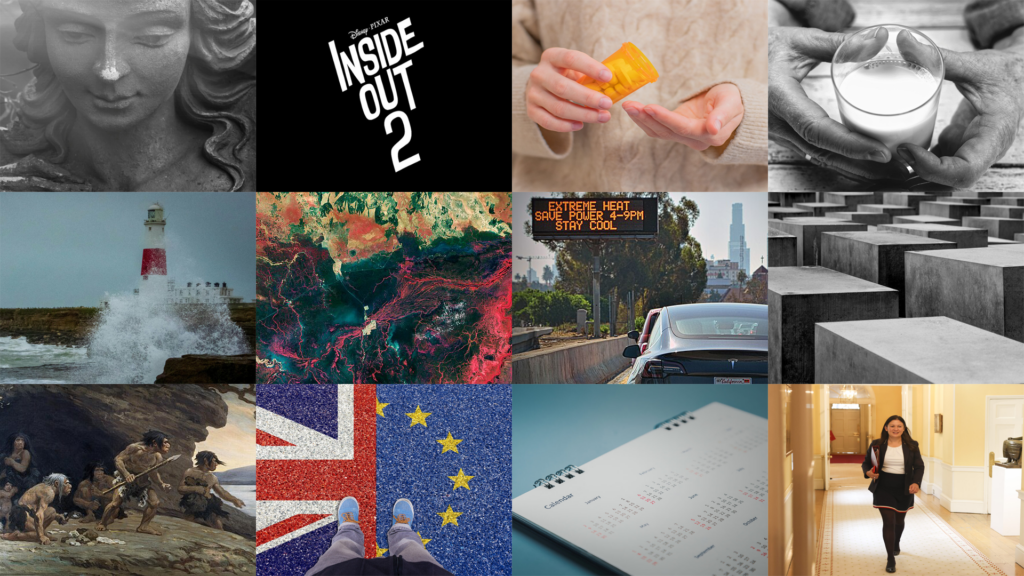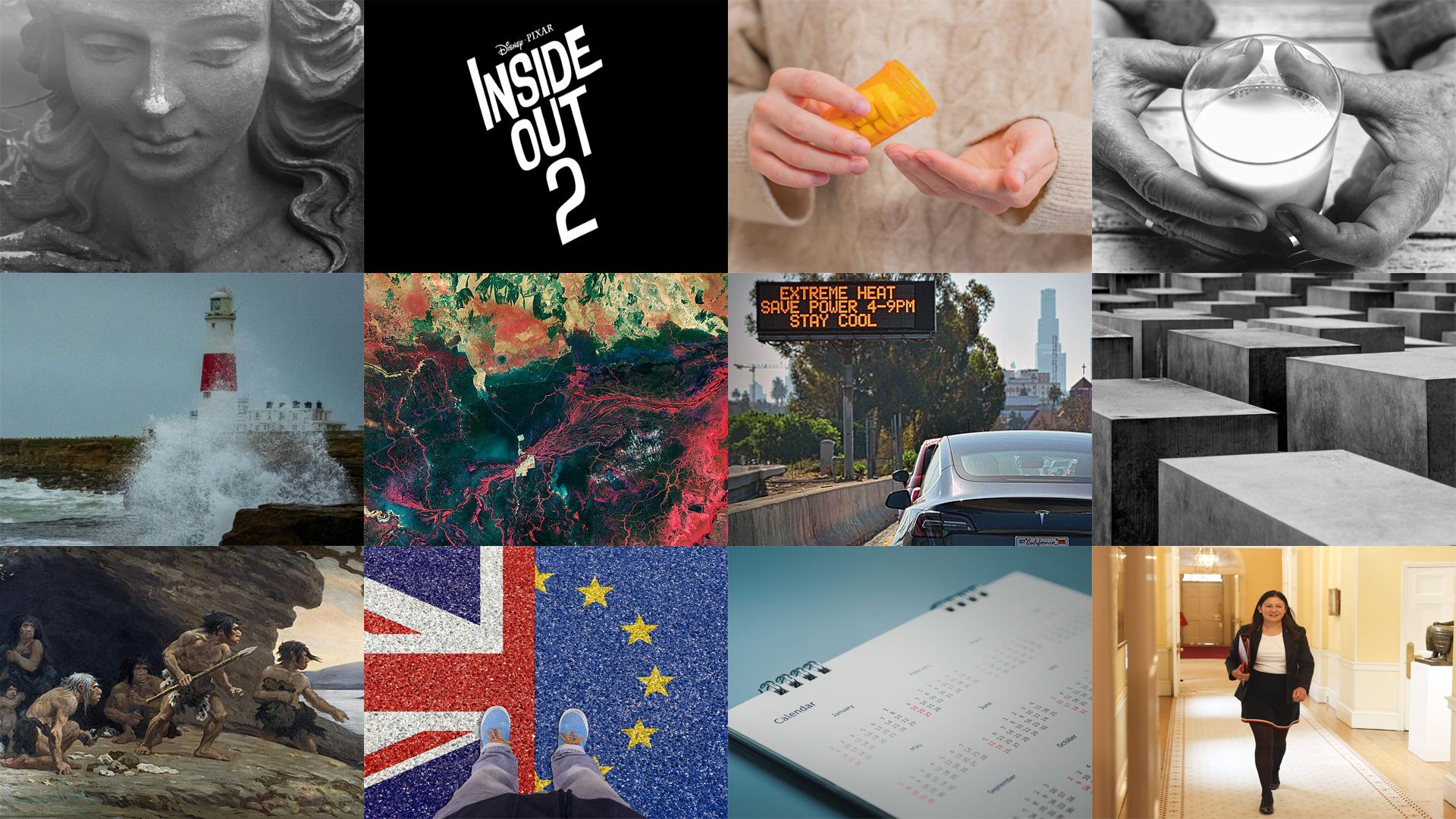
In 2024, researchers at the University of Reading published 54 articles on The Conversation. Together, these have been read over 1.4 million times.
Our academics have explored a wide range of topics, from teenage anxiety and Neanderthal language to climate science and the four-day working week, highlighting the breadth and depth of research taking place at Reading.
Here we present the top three most-read articles for each of the University’s research themes. The articles are republished on our Connecting Research blog under the Creative Commons (BY-NC) licence.
Agriculture, Food & Health
Is it still a good idea to take aspirin to prevent heart disease? Here’s what the evidence says

You might have heard that taking a daily low-dose aspirin can reduce your risk of developing heart disease. But, unless you have been told to take aspirin by your doctor, recent news should make you think again, because, for many, the risks outweigh the benefits. Read more
Millions of older people don’t get enough nutrients – how to spot it and what to do about it
By 2050, approximately a quarter of the UK population is expected to be over the age of 65. With this in mind, the World Health Organization has put “healthy ageing” on its agenda. This means finding ways to maintain health, wellbeing and functional ability in order to have a good quality of life and enjoy the later years. Read more
Inside Out 2: this fresh sequel shows teenage anxiety is not always a bad thing
When we think of teenagers experiencing anxiety, we’re likely to think about it as a mental health concern. But Inside Out 2 shows that anxiety is a normal feeling and can have a positive purpose – so long as it doesn’t take over. Read more
Environment
Earth has just ended a 13-month streak of record heat – here’s what to expect next
From June 2023 until June 2024, air and ocean surface water temperatures averaged a quarter of a degree Celsius higher than records set only a few years previously. Air temperatures in July 2024 were slightly cooler than the previous July (0.04°C, the narrowest of margins) according to the EU’s Copernicus Climate Change Service. Read more
South Sudan floods: the first example of a mass population permanently displaced by climate change?
Enormous floods have once again engulfed much of South Sudan, as record water-levels in Lake Victoria flow downstream through the Nile. More than 700,000 people have been affected. Hundreds of thousands of people there were already forced from their homes by huge floods a few years ago and were yet to return before this new threat emerged. Read more
Why does it feel so cold in the UK right now – and when will it warm up?

It looks like spring, but it doesn’t feel anything like it. The trees have green leaves, the flowers are blooming, yet it’s hard to believe that next week is May, because it feels so cold. How we feel, whether it’s warm or cold outside, depends on more than just the actual air temperature though. The wind, both its speed and direction, plus the amount of sunshine all play a big part in how the weather feels to us. Read more
Heritage & Creativity
How Neanderthal language differed from modern human – they probably didn’t use metaphors
The Neanderthals fascinate researchers and the general public alike. They remain central to debates about the nature of the genus Homo (the broad biological classification that humans and their relatives fall into). Neanderthals are also vital for understanding the uniqueness or otherwise of our species, Homo sapiens. Read more
How the social structures of Nazi Germany created a bystander society
In the initial post-war judicial proceedings to establish what had happened under Nazism, and to punish the perpetrators of crimes, victims’ accounts were often discredited. Only in 1961, with the high-profile trial of Nazi war criminal Adolf Eichmann in Jerusalem, did the focus shift. Read more
Aphrodite signified more than beauty – five other realms in which the Greek goddess also reigned
 For the ancient Greeks, Aphrodite was about so much more than love and beauty. In an overarching way, she was the goddess of consensus, as in any interaction between consenting people or groups of people. In politics, business and war, as well as human relationships, Aphrodite embodied the natural force, mixis, which translates into connections or dealings between persons or groups. Read more
For the ancient Greeks, Aphrodite was about so much more than love and beauty. In an overarching way, she was the goddess of consensus, as in any interaction between consenting people or groups of people. In politics, business and war, as well as human relationships, Aphrodite embodied the natural force, mixis, which translates into connections or dealings between persons or groups. Read more
Prosperity & Resilience
A four-day week can work – if staff and employers can deal with the challenges
When the weekends feel too short and the pressure of holding down a full-time job pushes workers to the limit, a four-day working week may appear very attractive. How does this happen in practice though, and can it become commonplace? Well, recent news about four-day working week trials show different outcomes. Read more
Bresignation: British people are ready to turn a page on the EU referendum vote

Much is made of the alleged state of Bregret – the idea that even those who voted for Brexit now regret their decision. It is true that a majority (54%) now think Britain was wrong to vote to leave the EU. According to a YouGov poll, 62% of people think Brexit has been more of a failure than a success. We even know that 18% of leave voters would now vote remain if they could have another go at the 2016 referendum. Read more
What a House of Commons with fewer privately educated MPs could mean for the UK
Elected leaders and representatives across democracies tend to be old, wealthy, male and belong to the ethnic majority of their respective countries. This lack of diversity is a problem: it suggests that those who govern are out of step with the broader society that they seek to represent. Read more
Enhancing public understanding of research
 The Conversation’s readership is largely non-academic, which means that writing for this platform enhances public understanding of research and can build the profile of academic work with new audiences and decision makers – including managers, chief officers, educators, health practitioners, and those working in media, policy or government. Because articles on The Conversation are open access, they can be shared and republished by other outlets, increasing their reach even further.
The Conversation’s readership is largely non-academic, which means that writing for this platform enhances public understanding of research and can build the profile of academic work with new audiences and decision makers – including managers, chief officers, educators, health practitioners, and those working in media, policy or government. Because articles on The Conversation are open access, they can be shared and republished by other outlets, increasing their reach even further.
Articles on The Conversation combine academic expertise with a journalistic approach – they can be responses to events in the news, discussions of new research, or explorations of broader topics or themes anchored in recent events.
You can pitch to The Conversation directly or through our Press Office (contact pressoffice@reading.ac.uk).

